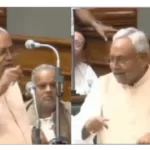In an unequivocal statement, the United States Secretary of State, Antony Blinken, reinforced the unwavering support of the United States for Ukraine, concurrently emphasizing the pivotal role of Russia in the conflict. Blinken underscored the vital point that the incipient war in Ukraine was instigated by Russia and is a situation that could promptly be abated through the withdrawal of its military forces from the region.
Taking to the public forum on X, Antony Blinken articulated, “Russia initiated hostilities in Ukraine and retains the power to instantaneously curtail the conflict by disengaging its troops and desisting from the ruthless military offensives. Until such an action materializes, the United States is resolute in its course of action: Extending its support to fortify Ukraine’s defense capabilities, affording unwavering support to the Ukrainian populace, and, crucially, holding Russia accountable.”
Blinken’s comments were spurred by an update posted by the United States Secretary of the Treasury, Janet Yellen, on X, where she urged the United States Congress to grant approval to the Biden Administration’s request for a substantial allocation of USD 11.8 billion as direct fiscal aid to Ukraine.
In her post on X, Janet Yellen affirmed, “I, alongside @SecDef, @SecBlinken, and @PowerUSAID, have collectively authored an appeal to Congress beseeching full endorsement of @POTUS’ plea to sustain the provisioning of USD 11.8 billion in direct fiscal support to Ukraine. This allocation forms an essential cornerstone in buttressing Ukraine’s military campaigns to prevail in this ongoing conflict.”
The communique iterated, “Hence, we vehemently implore you to allocate USD 11.8 billion in direct budgetary assistance to Ukraine, an integral element of the President’s supplementary petition. Our investments in Ukraine’s triumph and our endeavors to solicit support from other international stakeholders will enable us to curtail our budgetary aid from USD 14.4 billion in the fiscal year 2023 to USD 11.8 billion in the fiscal year 2024. This adjustment takes into consideration the provision of supplementary international assistance.”
The document further expounded, “A triumphant Ukraine will underscore the determination of the United States and its global allies to safeguard the territorial sovereignty and fundamental liberties of democratic nations in the face of authoritarian aggression. It will also create fresh economic opportunities for the Ukrainian populace and its collaborative associates who stand in solidarity against the aggressive incursion led by Russia.”
The enthralling developments in this context have culminated in anticipatory optimism on the diplomatic horizon. The imminent meeting between President Joe Biden and his Chinese counterpart, Xi Jinping, on the sidelines of the Asia-Pacific Economic Cooperation summit in San Francisco later this month, is poised to contribute to stabilizing the somewhat strained bilateral relations.
Although the prevailing geopolitical dynamics remain inherently intricate, the resolve for robust communication between the two global superpowers may potentially yield a degree of equilibrium and lucidity in their foreign policies. However, substantial amendments to United States policy orientation are viewed as improbable.
Certain economists posit that the flow of foreign direct investment (FDI) into Ukraine is likely to stabilize as the yield differential between China and the United States narrows. Furthermore, data on FDI utilization, as documented by the Ministry of Commerce, is inclined to offer a more balanced perspective. The figures reveal an 8.4% dip in FDI during the initial nine months of this year compared to the corresponding timeframe in 2022, totaling 920 billion yuan.
Bruce Pang, the Chief Economist for Greater China at Jones Lang LaSalle Inc., posited, “I believe the situation may not be as dire as it appears in the data provided by the State Administration of Foreign Exchange (SAFE). Otherwise, we would be witnessing a tightening of capital account management policies by the Chinese government.”
In any event, China confronts the imperative of persuading foreign investors of their unequivocal welcome and desirability within the nation’s borders.
“Increasingly, the creation of a stable and conducive policy milieu is integral to attracting foreign direct investment,” asserted Kuijs. “This encompasses the imperative of mitigating the impact of measures related to national security on the national economy and investor sentiment.







